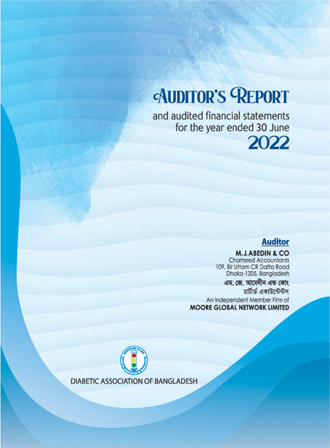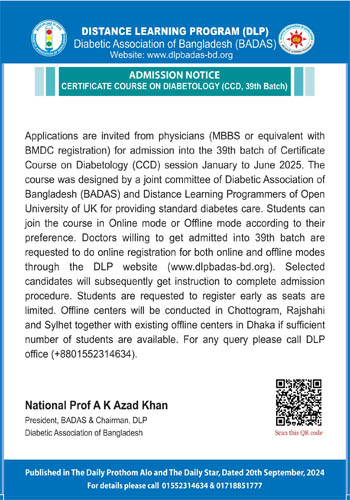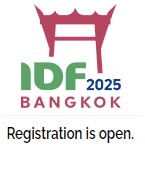Centre for Global Health Research
Centre for Global Health Research (CGHR)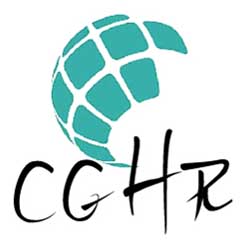 A research wing of Diabetic Association of Bangladesh.
A research wing of Diabetic Association of Bangladesh.
Website: cghr-badas.org
Aims of the project:
- To create a center of excellence for epidemiological and clinical studies with a special focus on diabetes and related cardiometabolic diseases.
- To develop strategies for the prevention and care of diabetes and related NCDs.
- To have an authoritative voice for the development of guidelines in the related disciplines for Bangladesh.
- To develop both national and international networks for global health research for non-communicable diseases.
Research Programs:
1. Chandra Rural Diabetes Study
- A joint research initiative of BADAS and University of Oslo (UIO), Norway
- Study place: Chandra, Gazipur
- Status: 16 papers published
2. Diabetes Prevention Intervention Study (DPIS)
- A joint research initiative of BADAS and University of Oslo (UIO), Norway
- Status: 1st paper ready for submission
3. GIFTs Mother and Child Health Study
- Mother and Child Health Research Program in Bangladesh is a part of GIFTS “Genomic and lifestyle predictors of fetal outcome relevant to diabetes and obesity and their relevance to prevention strategies in South Asian people” study.
- Status: Two papers were published, and 3rd paper is ready for submission.
4. Screening for diabetes and related cardiometabolic risks at workplaces in Bangladesh
- This study is part of the Diabetes Prevention Program in Workplaces (DPWP), an ongoing diabetes prevention program of the Diabetic Association of Bangladesh (BADAS).
- Status: Two papers published.
5. Knowledge and Care regarding GDM among Bangladeshi Population
- A joint research initiative of Preconception Care through Religious Leaders project of Centre for Global Health Research and SAFES, Bangladesh
- Status: Two papers were published, and 3rd paper is ready for submission.
6. Knowledge Attitude and Practice (KAP) among Physicians Before and After Distance Learning Program (DLP) in Bangladesh
- A joint research initiative of Centre for Global Health Research and Distance Learning Project, BADAS
- Status: 1st paper is ready for submission.
7. Factors associated with different types of Retinopathy in patients with type 2 diabetes in Bangladeshi Population
- A research initiative of Centre for Global Health Research
- Status: 1st paper is ready for submission.
8. Health problems among garment factory workers in Bangladesh
- This study is part of Comprehensive Healthcare for Garment Workers through the Micro Health Insurance Program of BADAS
- Status: 1st paper is ready for submission.
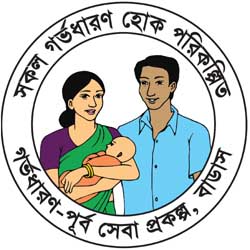
9. Pre-conception care through religious leaders (Kazis)
Goals:
- To improve community awareness on preconception care and prevention of non-communicable diseases (NCDs), particularly gestational diabetes (GDM) among newly married couples of Bangladesh, through religious leaders (Kazis)
- Target people: Newly married couples, Religious leaders (Kazis), and Health service providers (Physicians, Nurses, and Educators)
- Collaboration patterns: Diabetic Association of Bangladesh and Ministry of Law and Justice Division, Government of People’s Republic of Bangladesh
Status:
- Phase 1: completed
- Phase 2: Ongoing
- Established 54 preconception care corners.
- Rotary Club Romna provided 54 LDE signboards.
- Organized 2 television and 2 radio talk shows with religious leaders and health care providers for improving community awareness.
- Around 2000 women of reproductive age taken the preconception care package.
- A total of 30000 couples has already been provided counseling by the trained religious leaders.
- Development of website (pcc-badas.org).
- A total of 3000 people completed an online certificate course.
- A total of 4000 people completed online awareness questionnaires.
- Two papers are ready for publication.
10. Changing Diabetes Barometer in Bangladesh
- A joint research initiative of BADAS and Novo Nordisk Pharma (Pvt)
- Aim: To investigate the status of diabetes management, glycemic control, and complications in people with diabetes in Bangladesh through a web-based registry of the Diabetic Association of Bangladesh (BADAS).
- Study centers: 37 outpatient clinics of BADAS and its Affiliated Associations in eight (8) divisions of Bangladesh.
- Number of participants: 224354
- Status: Ongoing
- Publications: Two papers are ready for submission.
11. Prevention of diabetes through religious leaders (Imams)
Goal:
To build community awareness on healthy lifestyle for the prevention and care of diabetes and other NCDs through involving religious leaders (Imams) in Bangladesh.
- Target people: Religious leaders (Imams) and Community people
- Study site: 100 Upazilas in Bangladesh
- Study duration: June 2018 – June 2021
- Funding Agency: WDF
- Study patterns: Diabetic Association of Bangladesh, Islamic Foundation, Ministry of Religious Affairs; and Non-Communicable Disease Control Program of Directorate General of Health Services of Government of the People’s Republic of Bangladesh.
Activities
- One hundred (100) religious leaders (Imam) received intensive training on healthy lifestyles to prevent and care for diabetes and other NCDs.
- One hundred (100) diabetes corners establish in 100 Mosques in the Dhaka division near BADAS outpatients’ clinics.
- Developed education toolkits including booklets (15,000), leaflets (20,000), posters (6000), flip chart (150), training manuals (300), stand banners (110), round board banners (110).
- Six (6) television and Six (6) radio talk show arranged for improving community awareness.
- Develop a website and mobile help-line for enhancing awareness and patient compliance.
- One documentary film developed for community awareness.
- One mobile network is established between Imams and the Project office of BADAS for information sharing and data collection.
- Two hundred (240) Medical and Nursing Students participated in two (2) advocacy meetings.
- Launch a service package for the sustainability of the project.
- Islamic Foundation has issued a letter to all the mosques under their supervision (about three hundred thousand) for discussing the healthy lifestyle during Friday prayer.
12. Screening for Gestational Diabetes Mellitus and its Prevalence in Bangladesh
Objectives:- To evaluate the countrywide prevalence of GDM and its associated risk factors in Bangladesh.
- To evaluate the knowledge about GDM among pregnant women in Bangladesh.
- Study design: Cross-sectional study
- Total study samples: 7800
- Funding Agency: Novo Nordisk Pharma (Pvt)
- Status: Complete
- 1st paper is ready for publication
- Key points: • According to the preliminary findings, the rate of GDM is 26.4%, and the rate of good knowledge about GDM is only 26.3%.
13. Nationwide Free Diabetes Screening
- Aims: To investigate the rate of unknown diabetes and related risk markers among Bangladesh's adult population.
- Total screening: 100,000
- 1st paper is ready for publication
- Key points: According to the preliminary findings, the DM rate is 22.6%, and the rate of good knowledge about DM is only 38.8%.
14. BADAS Diabetes Care Guideline and Diabetes Journey
- BADAS first diabetes care guideline and app-based treatment approach called Diabetes journey.
- Collaboration between Diabetic Association of Bangladesh and Non-Communicable Disease Control Program, DG Health, Ministry of Health and Family Welfare, Government of People’s Republic of Bangladesh
- NovoNordisk Bangladesh
- Organized two national launching and several institutional programs
- Besides BADAS institutions, this guidebook was also circulated to 61 NCDC corners of DG Health.
15. Nationwide Electronic Registry of Patients through BADAS
The objectives of the Nationwide Electronic Patient Record through BADAS Centres are:
- Enrol all patients into an electronic patient record (software)
- Establish a uniform Patient Data Form that may used in all BADAS Institutions, Enterprises and Affiliated Associations.
- Establish a uniform Patient Identity Code.
- Determine the Diabetes Status of the patients
- Maintain the following patient data:
a. Demographic and socio-economic status
b. Medical/Clinical Data
c. Medical Conditions (if any)
d. Medication Behaviour
i. Oral
ii. Injectables
- Report and publish patient medical data accumulated through the Electronic Patient Record.
- To accumulate head count and medical data of Diabetic Patients under the medical care and service of BADAS Centres.
Primarily the Electronic Registry will be implemented among BADAS institutions and AAs, further extended to Accredited Physicians. BADAS will also encourage the physicians of health professional’s network for registering their patients in National registry for Diabetics in future.
Activities:
- Manpower selection and training- completed
- Software development and upgradation- completed
- Wi-Fi router installation – 52 centers
- Registration Completed - 32 centers in Dhaka including BIRDEM, BIHS and 30 NHN centers
- “COVID 19 and Diabetes – Our initiatives”
A joint initiative of the Centre for Global Health Research (CGHR) of Diabetic Association of Bangladesh (BADAS), Non-Communicable Diseases Control (NCDC) Program of Directorate General of Health Services (DGHS), Novo Nordisk, and the project for Strengthening Health Systems through Organizing Communities (SHASTO) of JICA.
Aims: The project aims to create social awareness on COVID-19 and diabetes to protect and support the people living with the disease and their families and improve knowledge among healthcare professionals in Bangladesh.
Activities:
- Develop two guidelines. One in English for health professionals (especially for doctors) and another in Bangla for primary healthcare professionals (e.g., nurses, paramedics, and people with diabetes.
- Develop a position statement on using the covid vaccine for people with diabetes.
- Develop an online platform – diabetes-covid19.org.
- The web portal has been added to the "International Diabetes Federation (IDF) Member resources" section of the COVID-19 and diabetes page: https://www.idf.org/aboutdiabetes/what-is-diabetes/covid-19-and-diabetes/1-covid-19-and-diabetes.html
- Also interlink with Bangladesh Police (www.police.gov.bd), Islamic Foundation (http://www.islamicfoundation.gov.bd), JICA,
- Develop free online certified course on COVID-19 and diabetes for health professionals (in English) and the general people (in Bangla).
The program has also been linked with the Government e-learning portal Moktoapaath (http://muktopaath.gov.bd/course-details/298). A total of 19468 people have completed these two courses. - Develop visual and multimedia awareness materials, including booklets, leaflets, six types of posters, four animation videos, one desktop calendar, and one documentary.
All these documents have already circulated to all the BADAS centers and Government hospitals. - More than 20 million people received text and video awareness messages.
- Organized three (3) television and two (2) radio talk shows for improving community awareness.
- Organized webinars and Facebook live events for physicians and people with diabetes.
- A total of 20000 people received free services (blood glucose tests and consultation services).
- About 4000 people with diabetes took advice and treatment through both COVID and Ibrahim Hotline.
- Engagement of religious' leaders (Imams) throughout the country for community awareness.
- Launch a national awareness campaign – "Know and Inform" "Don't be afraid; we are with you."
- Organized two national online conference on COVID-19 and diabetes for health professionals.
Research activities including
- Online survey to assess the knowledge, attitude, and practice related to COVID-19 and diabetes.
- Assess the biochemical and clinical parameters among diabetic patients before and after COVI-19- a nationwide survey in Bangladesh.
- Assess the biochemical and clinical parameters among hospitalized patient admitted with COVID-19 infection


